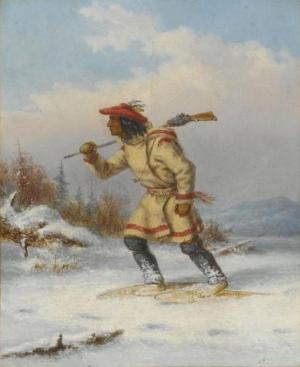Preliminary Discourse on the Study of Natural Philosophy
Nonfiction, Religion & Spirituality, New Age, History, Fiction & Literature| Author: | Sir John Frederick William Herschel | ISBN: | 9781465616142 |
| Publisher: | Library of Alexandria | Publication: | March 8, 2015 |
| Imprint: | Language: | English |
| Author: | Sir John Frederick William Herschel |
| ISBN: | 9781465616142 |
| Publisher: | Library of Alexandria |
| Publication: | March 8, 2015 |
| Imprint: | |
| Language: | English |
The situation of man on the globe he inhabits, and over which he has obtained the control, is in many respects exceedingly remarkable. Compared with its other denizens, he seems, if we regard only his physical constitution, in almost every respect their inferior, and equally unprovided for the supply of his natural wants and his defence against the innumerable enemies which surround him. No other animal passes so large a portion of its existence in a state of absolute helplessness, or falls in old age into such protracted and lamentable imbecility. To no other warm-blooded animal has nature denied that indispensable covering without which the vicissitudes of a temperate and the rigours of a cold climate are equally insupportable; and to scarcely any has she been so sparing in external weapons, whether for attack or defence. Destitute alike of speed to avoid and of arms to repel the aggressions of his voracious foes; tenderly susceptible of atmospheric influences; and unfitted for the coarse aliments which the earth affords spontaneously during at least two thirds of the year, even in temperate climates,—man, if abandoned to mere instinct, would be of all creatures the most destitute and miserable. Distracted by terror and goaded by famine; driven to the most abject expedients for concealment from his enemies, and to the most cowardly devices for the seizure and destruction of his nobler prey, his existence would be one continued subterfuge or stratagem;—his dwelling would be in dens of the earth, in clefts of rocks, or in the hollows of trees; his food worms, and the lower reptiles, or such few and crude productions of the soil as his organs could be brought to assimilate, varied with occasional relics, mangled by more powerful beasts of prey, or contemned by their more pampered choice. Remarkable only for the absence of those powers and qualities which obtain for other animals a degree of security and respect, he would be disregarded by some, and hunted down by others, till after a few generations his species would become altogether extinct, or, at best, would be restricted to a few islands in tropical regions, where the warmth of the climate, the paucity of enemies, and the abundance of vegetable food, might permit it to linger.
The situation of man on the globe he inhabits, and over which he has obtained the control, is in many respects exceedingly remarkable. Compared with its other denizens, he seems, if we regard only his physical constitution, in almost every respect their inferior, and equally unprovided for the supply of his natural wants and his defence against the innumerable enemies which surround him. No other animal passes so large a portion of its existence in a state of absolute helplessness, or falls in old age into such protracted and lamentable imbecility. To no other warm-blooded animal has nature denied that indispensable covering without which the vicissitudes of a temperate and the rigours of a cold climate are equally insupportable; and to scarcely any has she been so sparing in external weapons, whether for attack or defence. Destitute alike of speed to avoid and of arms to repel the aggressions of his voracious foes; tenderly susceptible of atmospheric influences; and unfitted for the coarse aliments which the earth affords spontaneously during at least two thirds of the year, even in temperate climates,—man, if abandoned to mere instinct, would be of all creatures the most destitute and miserable. Distracted by terror and goaded by famine; driven to the most abject expedients for concealment from his enemies, and to the most cowardly devices for the seizure and destruction of his nobler prey, his existence would be one continued subterfuge or stratagem;—his dwelling would be in dens of the earth, in clefts of rocks, or in the hollows of trees; his food worms, and the lower reptiles, or such few and crude productions of the soil as his organs could be brought to assimilate, varied with occasional relics, mangled by more powerful beasts of prey, or contemned by their more pampered choice. Remarkable only for the absence of those powers and qualities which obtain for other animals a degree of security and respect, he would be disregarded by some, and hunted down by others, till after a few generations his species would become altogether extinct, or, at best, would be restricted to a few islands in tropical regions, where the warmth of the climate, the paucity of enemies, and the abundance of vegetable food, might permit it to linger.















